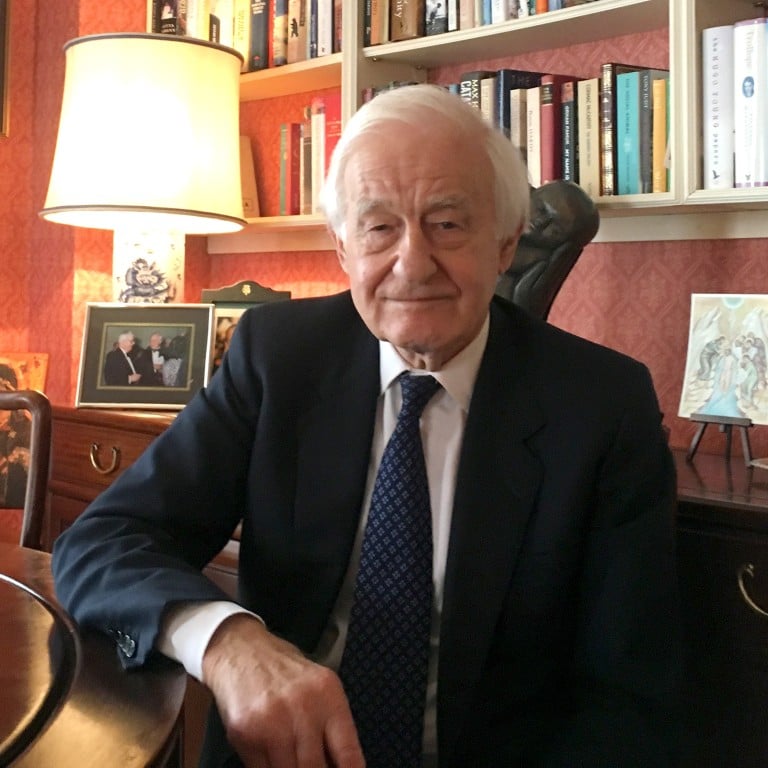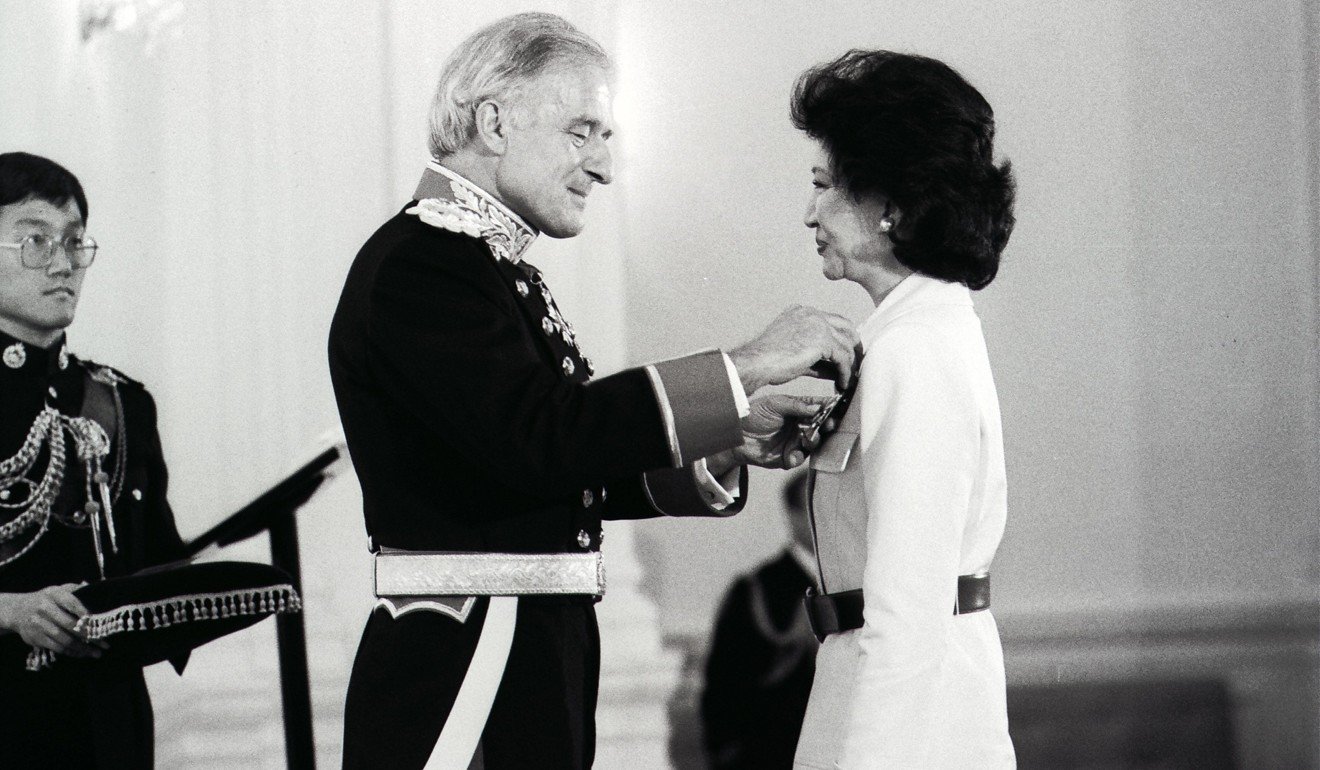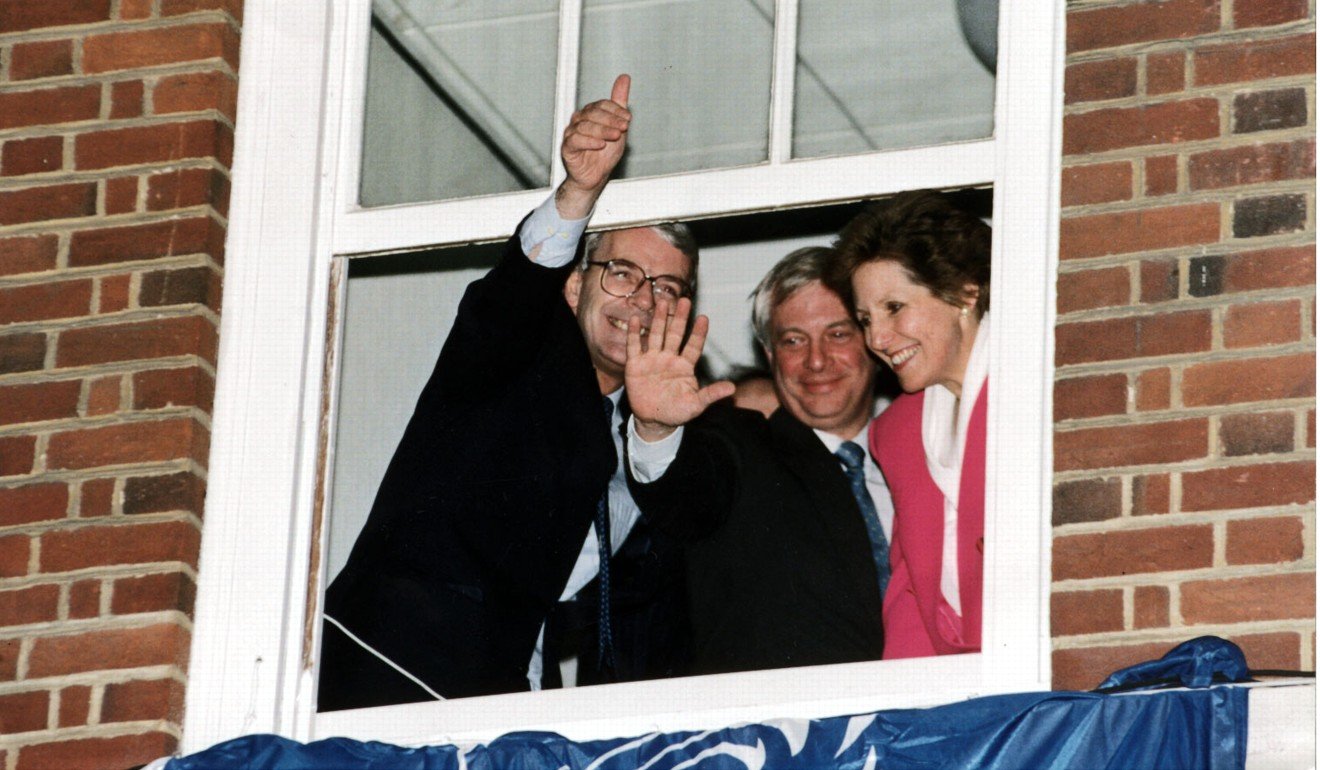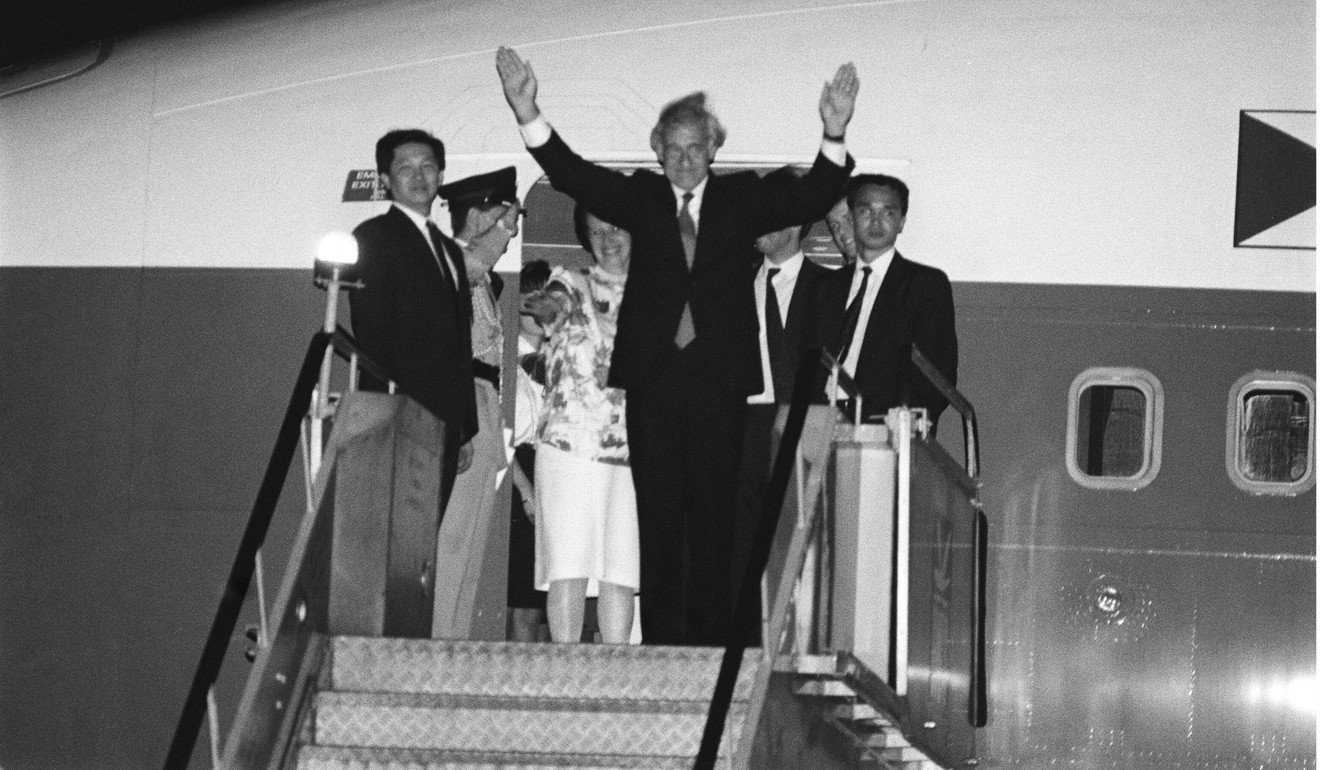
David Wilson was forced out as governor of Hong Kong by British prime minister John Major despite objections from Executive Council, new declassified files reveal
- British reportedly wanted politician to run city in the run-up to handover to China
- But senior members of advisory body warned of dangers of making change at time of uncertainty
David Wilson was forced to retire as Hong Kong governor in 1992 as Britain wanted a politician to run the colony instead of a career diplomat despite strong reservations from most top government advisers in the city, newly declassified files reveal.
Lydia Dunn, senior member of the Executive Council at the time – the top policymaking body in the colonial era – warned then British foreign secretary Douglas Hurd that a change of governor before 1995 would add further uncertainty at a time of rapid political and psychological change in the city.
The British government announced on December 30, 1991, that Wilson, who was a veteran diplomat before his appointment as Hong Kong governor in 1987, would retire within 12 months, and had been handed a life peerage in the New Year’s honours list.

But the British government did not announce Wilson’s successor, sparking speculation he was being sacked. Then British prime minister John Major said at the time that Wilson, who was 56, had “the government’s full confidence”.
Despite Major’s endorsement, there were media reports of unhappiness in London and Hong Kong over the governor’s handling of talks with Beijing over the new airport project at Chek Lap Kok.
Bilateral talks on the issue had come close to breaking down when Major agreed to visit Beijing in 1991. Previously released British records revealed that some British firms were unhappy with Wilson because he was not doing enough to help them pursue commercial interests in Hong Kong.
After leading the Conservative Party to victory in the 1992 general election, Major announced that Chris Patten, his close friend and the party chairman, who unexpectedly lost his parliamentary seat, would take up the post of Hong Kong governor.

In a letter to Stephen Wall, private secretary to Major, on October 31, 1991, Richard Gozney, Hurd’s private secretary, wrote that Wilson suggested something should be added to the announcement about his retirement to make clear when the name of his successor would be unveiled.
“He [Wilson] comments that, ideally, that should be as soon as possible to end the speculation and uncertainty,” Gozney wrote. “Sir David asks that when the statement is made, a positive effort should be made in background briefing to reinforce the point that he has the confidence of the government.
“He says that this is not a matter of personal vanity, but of practical importance in maintaining the sort of authority he needs to administer the territory before he leaves.”
The records were declassified last week from the National Archives in London.
Why David Wilson started the Wilson Trail
In a private message to Dunn on December 27, 1991, Hurd said both Major and he had reached the conclusion that it would be right to seek a “political personality” to take over the governorship for the remaining years of British government.
After delivering the message from Hurd to Dunn in person, Wilson wrote in a note to the foreign secretary that the top Chinese representative in the colonial government was “clearly surprised and unhappy”.
“She queried why it was necessary to make an announcement now. It will lead to a prolonged period of speculation and uncertainty,” Wilson wrote. “Dunn asked whether I could transit, and appealed that the decision to make an announcement should be reversed or delayed.”
After meeting with Wilson, Dunn wrote to Hurd.
“I, and many colleagues [in the Executive Council], believe that a change in governor in the immediate future, i.e. before 1995, would not be in Hong Kong’s interest. It would add further uncertainty at a time of rapid political and psychological change,” she wrote.

Hurd replied that he understood Dunn wanted Wilson to stay as governor, but the British government stuck to its guns.
Announcing Wilson’s retirement on December 30, 1991, Major said: “It was never the intention that Sir David should serve until 1997.”
Major had repeatedly denied that Wilson would be retiring when his five-year tenure was up, and stressed in September 1991 that there was “no vacancy” for the post.
Wilson was known as an “old China hand” in Britain’s Foreign Office, and had emphasised cooperation with Beijing on the sensitive issue of Hong Kong’s transition of sovereignty.
He told the Post he would not comment on the files nor the manner of his departure from Hong Kong.
“When the records of the National Archives are opened, it is best that historians should comment as they see fit,” he said.
Dunn also declined to comment, and said she had “completely retired”.
Another declassified document showed the divergent views between Major and Wilson on the British interest in the Tsing Ma Bridge – one of the core new infrastructure projects related to the airport.
According to a note written by Wall, Major told Wilson at a meeting in London on January 22, 1992, that he hoped an Anglo-Japanese consortium would “do well” in the tender process for building the new Hong Kong airport.
Ex-governor David Wilson ‘clueless’ why he got job over Prince Charles
“The governor described the various bids. The Korean bid was surprisingly good technically. The Anglo-Japanese bid was in the middle but was more hedged with conditions than the other bids. The Anglo-Japanese consortium knew that they would have to adjust this conditionality if they were to have a hope of success,” Wall wrote.
“The governor said that they were in with a chance. But they would have to fight for it.”
British files declassified in July last year revealed that Wilson insisted the bidding process must be conducted on a level playing field.
The HK$7.1 billion contract to build the Tsing Ma Bridge was awarded in May 1992 to the Anglo-Japanese joint venture of Trafalgar House Construction (Asia), Costain Civil Engineering of Britain, and Japan’s Mitsui.

